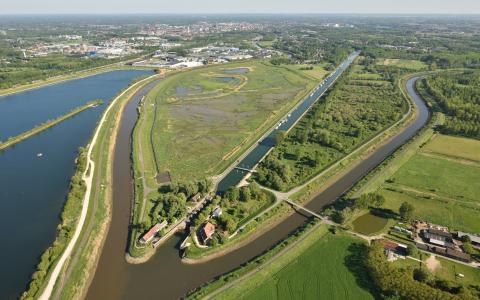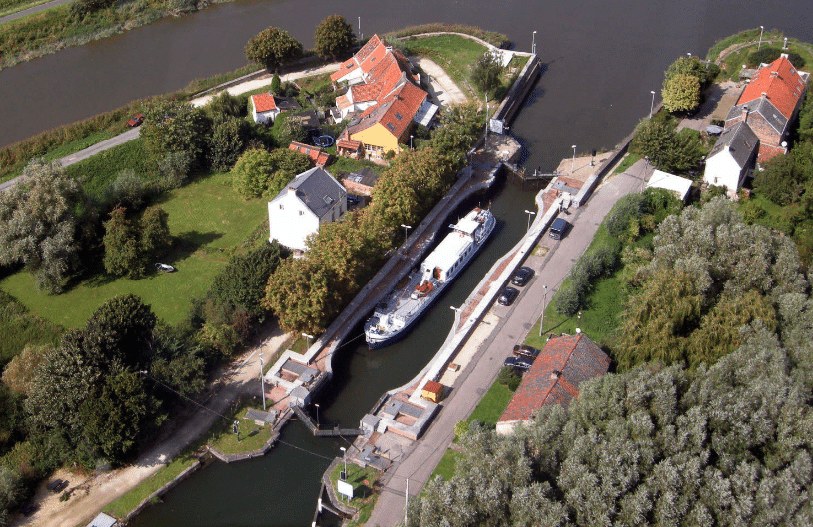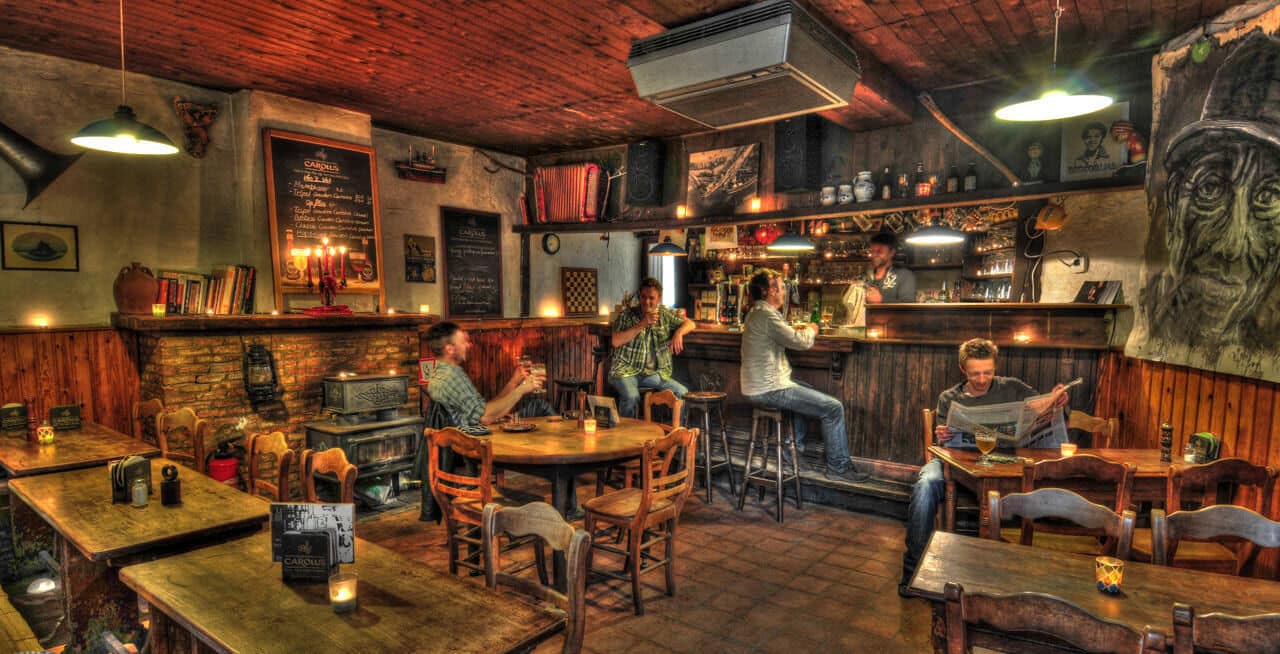It is one of the most remote spots in Flanders. Almost no one knows about the tiny village of Zennegat. Yet it is only five kilometres by bike from Mechelen.
The village lies in a strange damp region of marshes and tidal rivers that is virtually uninhabitable because of the risk of flooding. When you get there, you find a row of modest houses and an old café squeezed onto a narrow spit of land where three waterways meet. It feels cut off from civilisation although you can hear the sound of the motorway not far away.
 Zennegat is a paradise for cyclists and walkers, located where two rivers and a canal meet.
Zennegat is a paradise for cyclists and walkers, located where two rivers and a canal meet.© Agency for Nature and Forests
Zennegat (Zenne Gap) gets its name from the little river Zenne that famously runs below the streets of Brussels in a 19th-century tunnel. The village emerged in the 1750s when the Austrians ruled over this watery region of Europe. Emperess Maria-Theresa issued the order to dig a canal from Leuven to the sea to transport beer and raw materials.
 Aerial view above the remaining houses of Zennegat, above the river Zenne and a boat in the lock of the Leuven-Dijle Canal.
Aerial view above the remaining houses of Zennegat, above the river Zenne and a boat in the lock of the Leuven-Dijle Canal.© Beeldbank Mechelen
The project required a lock at the spot where the new canal joined the river Zenne. A café opened to serve drinks to the skippers and pilots who worked on the canal. The artist Rik Wouters came out here from Mechelen to sketch.
The village became a hangout for hippies and dropouts in the 1960s. Locals couldn’t believe their eyes when they saw young people jumping naked into the lock. It still has a rebellious, alternative feel.
 Zennegat 13, the last pub in the hamlet, was built mid-17th century.
Zennegat 13, the last pub in the hamlet, was built mid-17th century.© Zennegat 13
The Zennegat cafe is still there. It is a friendly, relaxed place furnished with old wooden tables, oil paintings and piles of books. People cycle out here for a beer and the local dish paling in ‘t groen. It feels cut off from the world. But the motorway is not far away.












